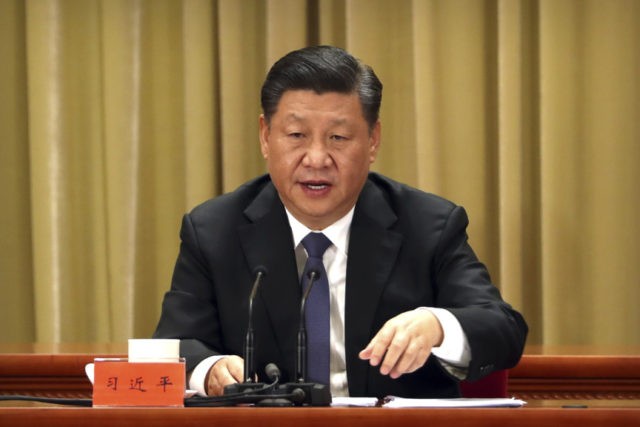Chinese Communist Party leader Xi Jinping has long been accused of using his seven-year “anti-corruption” crusade as an excuse to purge officials who are rivals to his power or critics of his ideology.
This critique will find new energy thanks to Tuesday’s announcement that China’s chief corruption-fighting agency will also begin targeting “political deviation” as well as graft.
Reuters noted on Tuesday that the Central Commission for Discipline Inspection is merely acknowledging and ratifying its longstanding practice of conducting “political inspections” to uncover “deviation,” as deputy chief inspector Wang Ying put it.
The anti-corruption watchdog agency will now officially target critics of Communist Party dogma and Xi’s policies and prosecute officials for having “undesirable work styles,” which will join a totalitarian lexicon of nebulous crimes that already includes harboring “inflated political ambitions” and “subverting the power of the state.” The latter is a handy all-purpose charge that can cover just about anything a Chinese citizen does that could make other citizens less likely to enthusiastically support government policies.
Xi’s government often portrays corruption as a form of subversion, not because the accused are stealing state property, but because their corruption damages public faith in the government and its policies. Perhaps out of concern for maintaining public trust, Beijing has been codifying anti-corruption prosecutions and making them appear more like regular legal proceedings than the draconian extra-legal hunting expeditions they used to be.
Not that the defendants enjoy anything remotely resembling the free world’s understanding of due process; they have a tendency to disappear abruptly and spend months in prison before the government gets around to charging them with anything.
The South China Morning Post reported in early February that an artificial intelligence system designed to root out corruption, amusingly named “Zero Trust,” found so many officials with their hands in the till that it has been decommissioned in some of its test markets, as local governments could not handle the flood of embezzling, nepotism, and abuse of power cases it discovered. Government officials became reluctant to provide the system with the data it needs because they were terrified it might accuse them of corruption.
The goal of Zero Trust is to find officials in the early stages of corruption before they commit the most severe offenses so they can be re-educated. The system is described as exceptionally good at finding irregular spending patterns by officials, fabricated reports that do not match up with other databases, and even using satellite photography to check up on public works projects to make sure they are actually completed after local officials appropriate funds for them.
“AI may quickly point out a corrupt official, but it is not very good at explaining the process it has gone through to reach such a conclusion. Although it gets it right in most cases, you need a human to work closely with it,” one of the researchers said. All of that sounds more like a feature than a bug for Xi Jinping’s endless anti-corruption, anti-political-deviation campaign.

COMMENTS
Please let us know if you're having issues with commenting.